Mathieu Avanzi has written an entertaining and deeply researched book, Comme On Dit Chez Nous, about the terms used in France for all sorts of things, from food to pencils to tires and more. It is witty and informative and comes with maps showing where different terms are used, including in the francophone regions of Belgium and Switzerland.
Let’s look at a few. Part 1/4 can be found here
May I Have Some Water, Please?
To ask your server for water at a restaurant, what you say depends on where you are. In much of France, you’ll ask for a pichet. Around Lyon, it will be a pot d’eau. Further south, it’s a pot-à-eau, and finally in Marseille, a broc. And let’s not forget cruche, carafe, and brodo!
Dressing Your Salad
When they mix dressing into their salad, most French say it is to mélanger or touiller the dressing with the salad. For others, it is brasser, in the Languedoc we have bouléguer, from the old Occitan language, and the Normans like to ensaucer. Finally, the Belgians use fatiguer, which sounds like they are beating up that poor salad.
Let’s Play!
When kids are running around playing tag (jeu du chat or jeu du loup), sometimes they call a time-out to catch their breath. What do they say when they need a break? Usually it’s pouce (thumb) or maison magique, but it can be a lot of other things. There are words similar to pouce, like pouni, pounsi, and pountsi, but also others like mouille, go, and quine. In Belgiu,m it’s deux or deuz (for “two minutes”?), and near Geneva, it’s boucle (or “loop”) because you make a circle with thumb and forefinger to call for a pause.
Addressing Our Elders
Besides grand-mère, there are many ways to address one’s grandmother. Mamie and mémé are the most popular, with plenty of variations: bonne-maman (also a popular brand of jams), grand-maman, mamette, mémère, and mamama. Then there is Corsica, an island with a mixed Franco-Italian history, that has its own unique words like mammon, mina, and caccara.
Ick!
The French have many words for what comes out of your nose (ok, I’ll say it: snot.) Most of France says morve, which has a neutral sound. I prefer words from the south, like mèque, mouque, and mouquire, which sound more like what it is we’re talking about. But it’s the regions closest to Germany that win, because how can you beat schnougel, schnoudel, and my favorite, schnoutre?
Time to Go Shopping
When I was growing up, if a kid had outgrown his pants and they were now too short, we called the pants floods (“Jimmy’s wearing floods!”) France has lots of colorful expressions for pants that are too short: aller à la pêche aux moules (go fishing for mussels), avoir de l’eau à la cave (have water in the basement), avoir le feu au plancher (have a floor on fire), and aller aux fraises (harvest strawberries, presumably in the morning with the fields are wet with dew.) In all cases, it’s advised to get longer pants.
Have you had any language experiences such as these? We’d love to hear from you in the comments below.
Image Credits
Facebook page Français de nos regions, the site of book author Mathieu Avanzi
Introducing Contributor, Keith Van Sickle
Immerse yourself in all of Keith’s articles on his Contributor page.


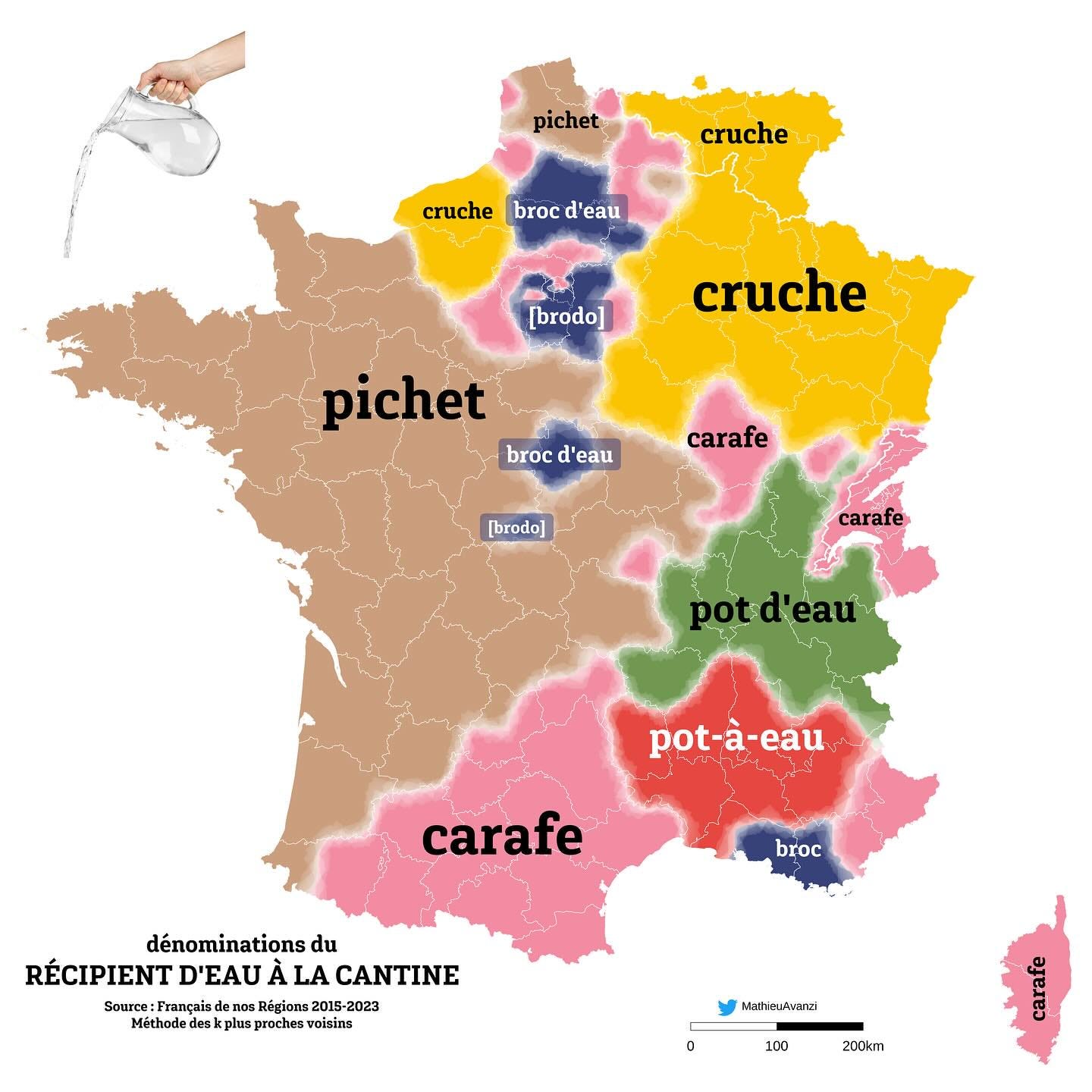
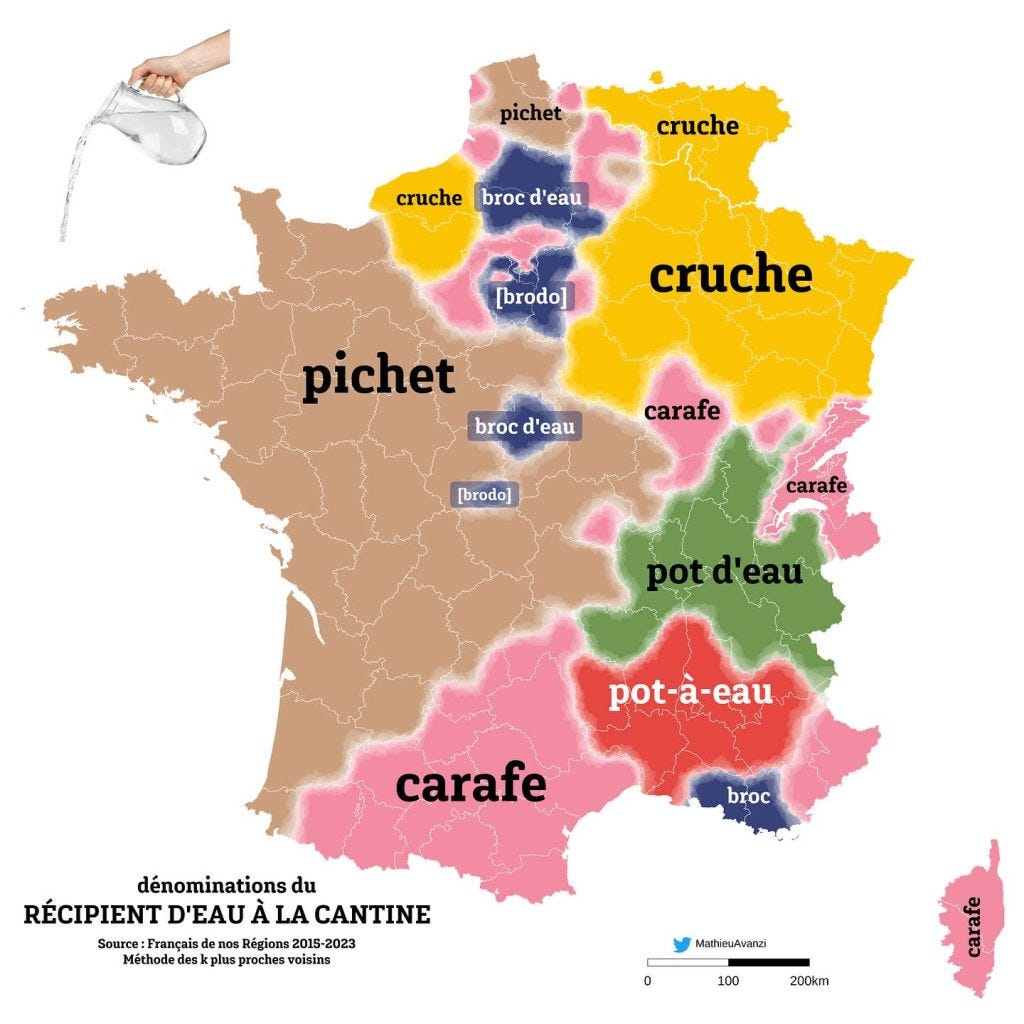
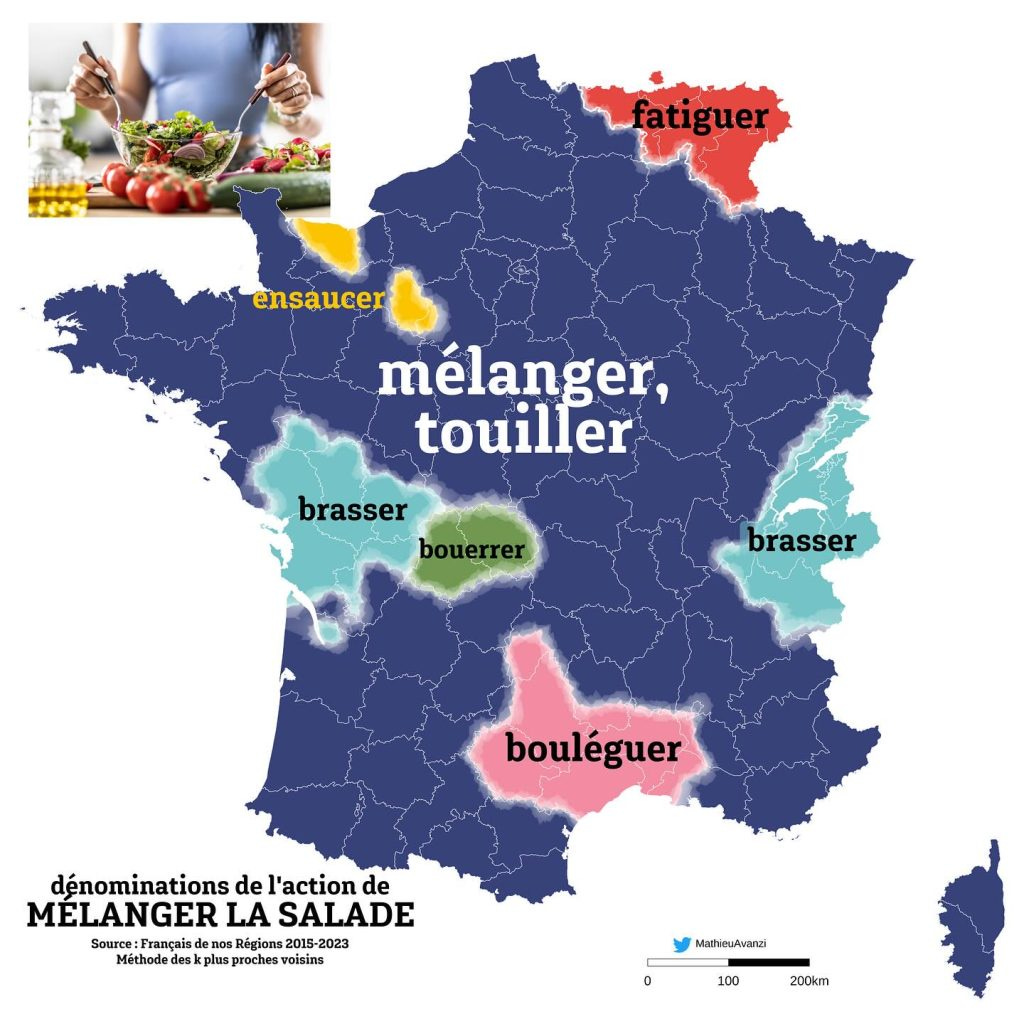
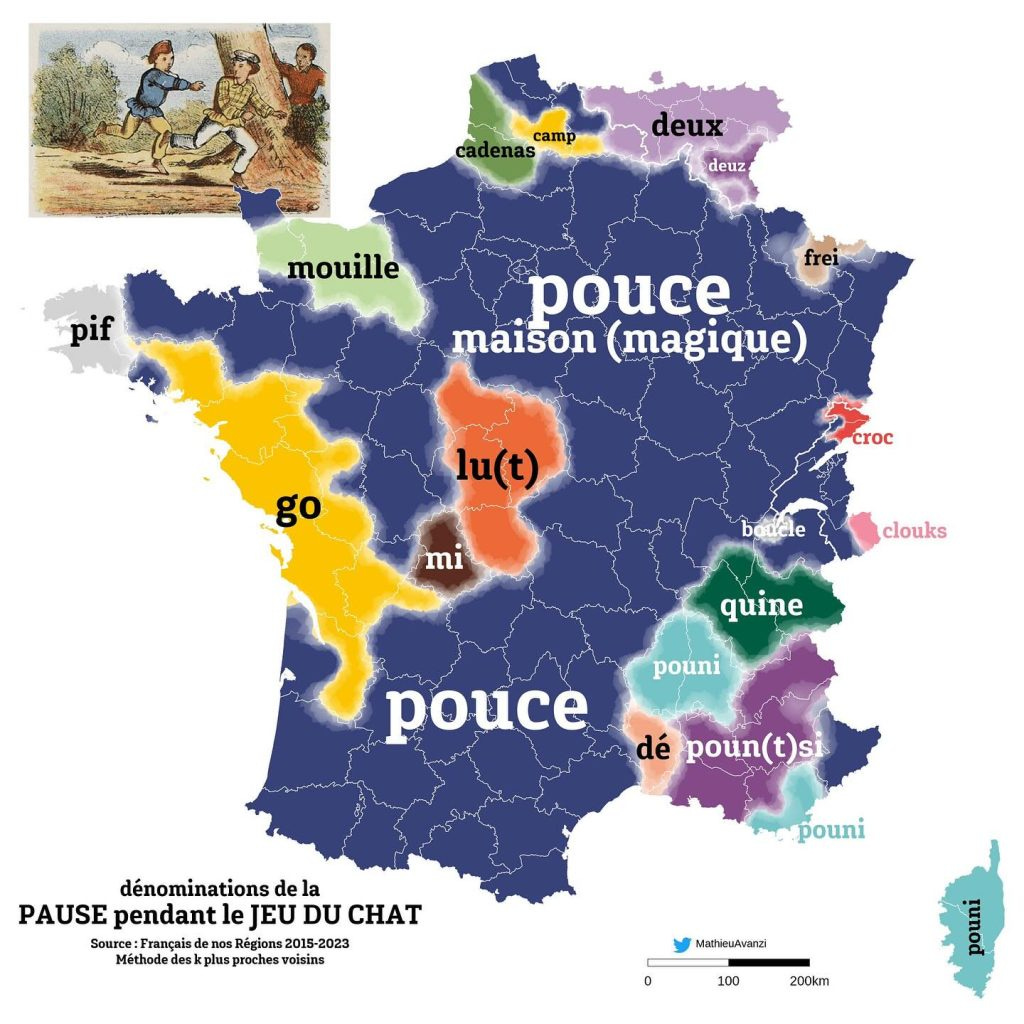
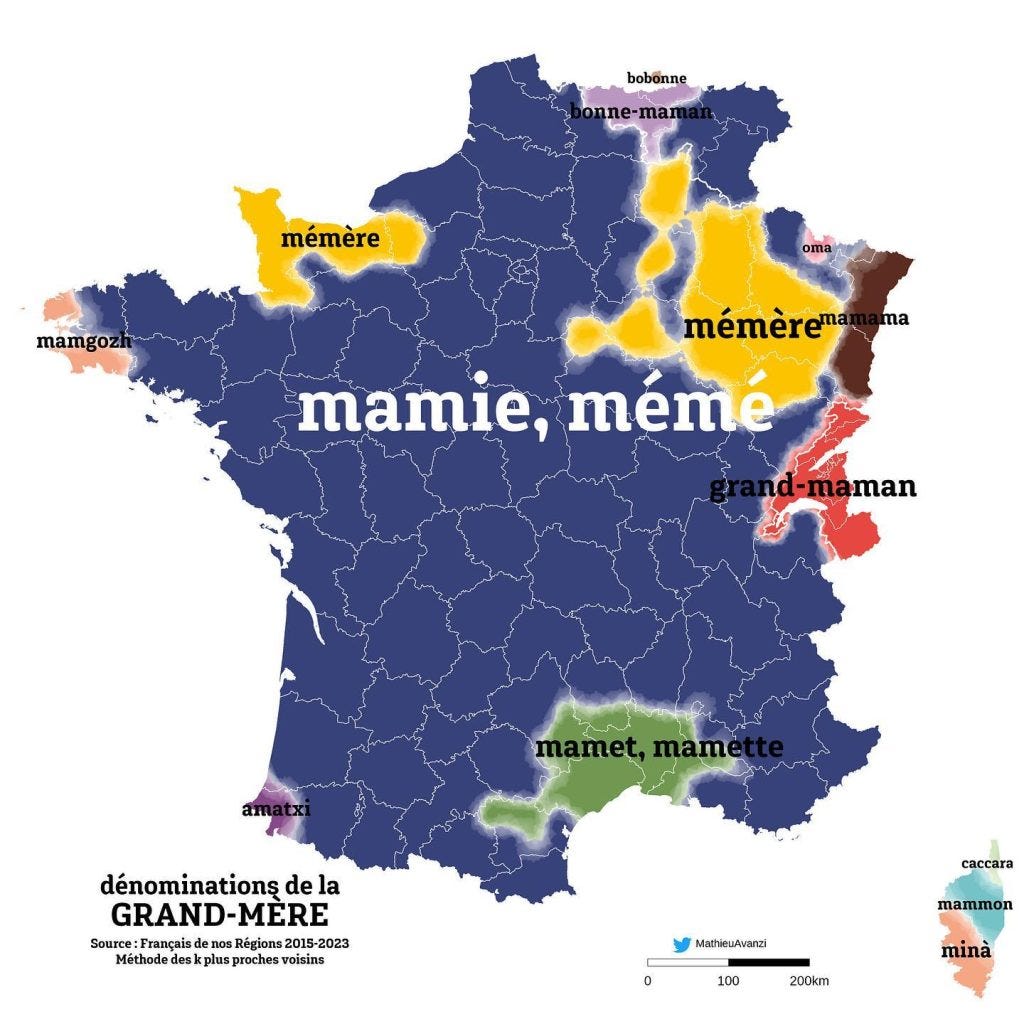
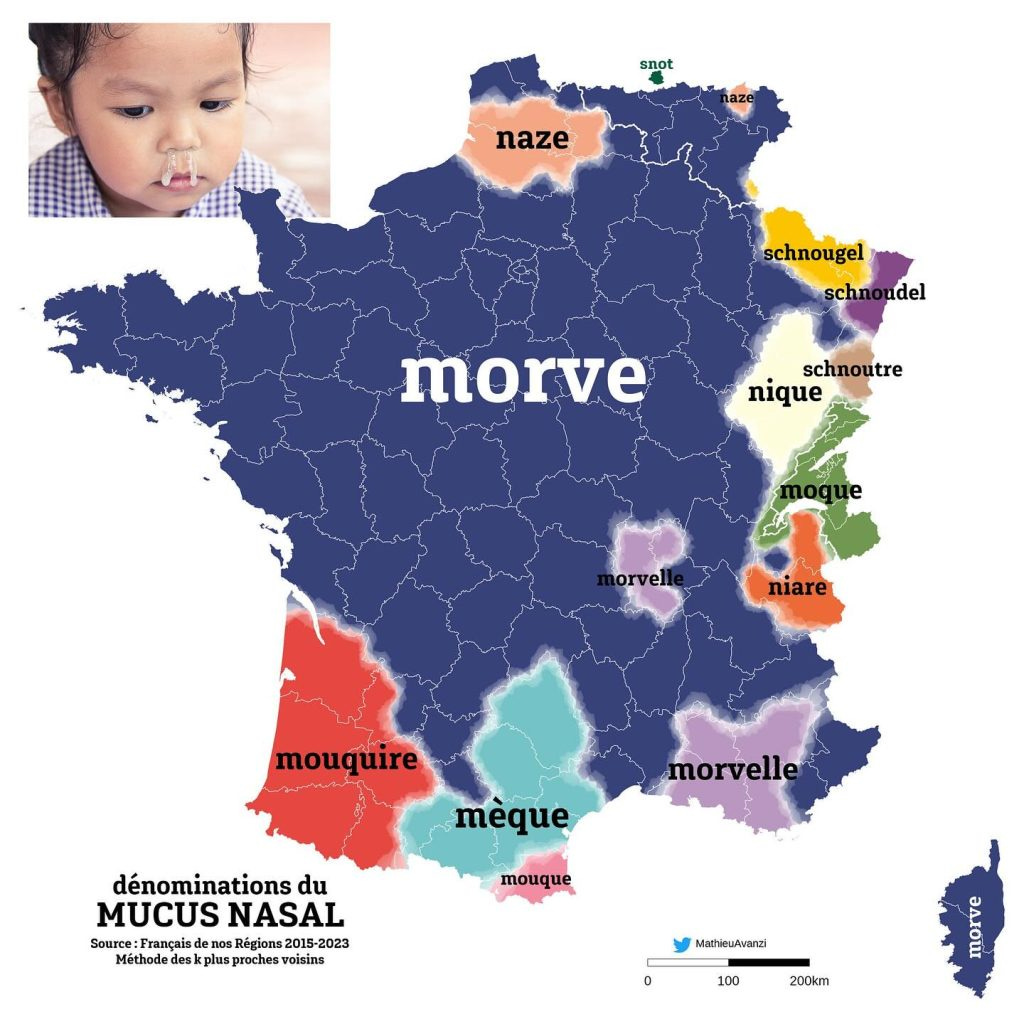
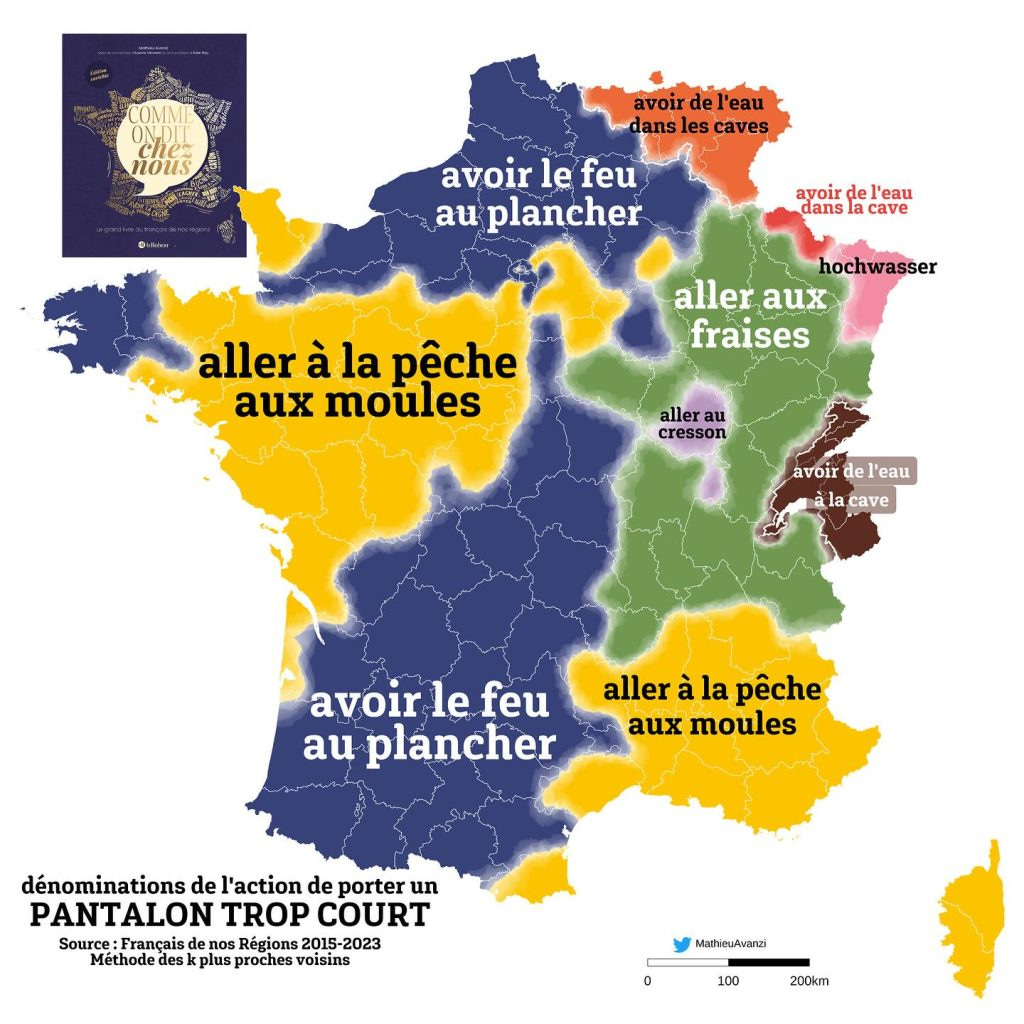
What a lovely collection - BUT most cannot read french to this extent - nor do they fall into the existential mind trip of France. Would love to see a list of unusual books, that take one into daily life in France, (fiction or non)that are translated into English. A list of books that aren't on the radar but are good reads none the less.
"I find that smiling, then looking very lost and curious as I begin to explain (in poor French)..." I loved this! When I lived in France, I was pretty much always confused, but I found that French people--even Parisians!--are kind to a person in distress who tries and fails to speak decent French, while "bonour-madam"ing left and right.